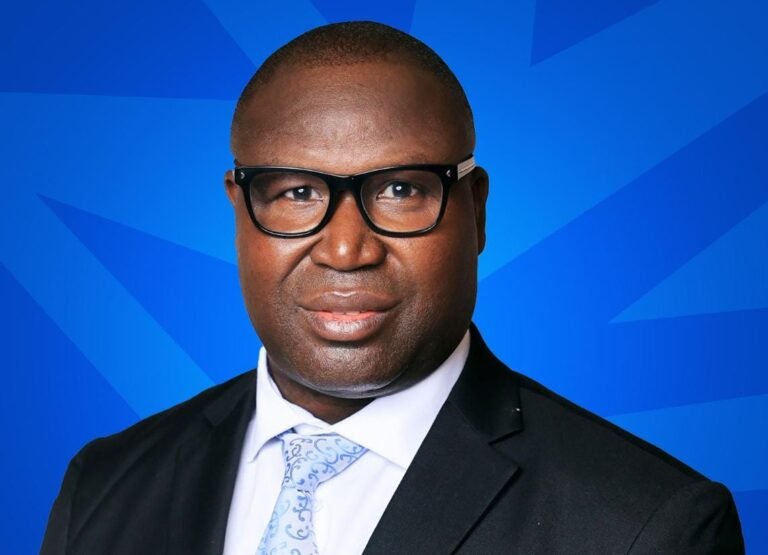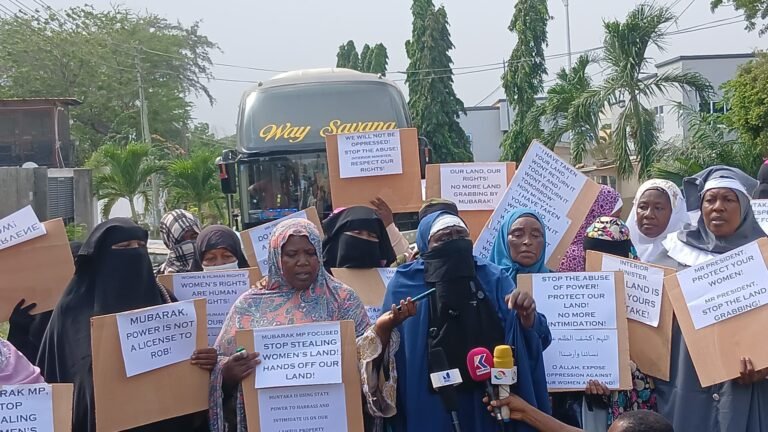
Dr. Eugene Owusu, Special Advisor to the President on the SDGs

The Sustainable Development Goals (SGDs) Advisory Unit at the Office of the President, in partnership with the Ministry of Environment, Science, Technology and Innovation (MESTI), the Embassy of Norway, and the United Nations Development Programme (UNDP), will May 31 and June 1, 2023 hold a maiden Blue Economy Summit in Accra at the Mövenpick Hotel.
Addressing a media launch in Accra yesterday, the Special Advisor to the President on the SDGs, Dr. Eugene Owusu, explained that the overarching objective of the summit is to raise awareness on the need to urgently address the critical challenges facing the country’s ocean, and to highlight the immense opportunities that it offers for transformation.
The event will be held against the background of degraded beaches and coastal lines and the imperative for Ghana to redeem itself as a global partner in fighting global warming.
“This Summit will be more than just a platform for sharing knowledge and ideas. It will be an opportunity to forge new partnerships and collaborations, to build networks and communities of practice, and to catalyze action and investment towards a more sustainable and resilient blue economy,” he noted.
Sustainable focus
Dr Owusu expressed the hope that the Summit would spur urgent actions to sustainably utilize the vast resources and services that the ocean provides to transform the national economy.
He also stated that the summit will be a chance to learn from each other, to challenge each other, and to inspire each other to take bold and transformative steps towards a brighter ocean future, adding that “the landmark Summit should be a clear signal and a testament to Ghana’s commitment to the sustainable management of its oceans and coastal resources”.
“Protecting and restoring the health of our ocean is not only a moral imperative. It is an absolute necessity. The ocean is the future when it comes to our food security, our prosperity and our national security. We cannot achieve the sustainable and prosperous future that we all crave for, and which we need, without a healthy ocean,” he stressed.
He further emphasised that the world needs a new ocean agenda, anchored in the recognition that the blue economy should be a catalyst for sustainable development.

That, he indicated, will help provide new opportunities for economic growth and job creation as well as ensure the long-term health and resilience of ocean and coastal ecosystems.
“This recognition has led to the establishment of a High Level Panel on a Sustainable Ocean Economy, of which our President is one of the Founding members. The HLP on a Sustainable Ocean Economy is made up of 17 Heads of State and Governments, who are championing a new ocean agenda to build momentum towards a sustainable ocean economy in which effective protection, sustainable production and equitable prosperity go hand-in-hand,” he noted.
To date, he explained that much of the work and advocacy of the High Level Panel had been at the global level, focusing on five key areas like ocean health, ocean wealth, ocean knowledge, ocean finance and ocean equity.
Advocacy outputs
He said over the past three years, the advocacy and analytical outputs produced by the Panel had contributed to shaping the global ocean conversation and ocean action.
However, he, stressed localising the ocean discourse will trigger the real transformation at country levels because people have personal connections to the ocean, which also plays an essential role in the daily lives of everyone on this planet.
He noted that the ocean makes life possible by providing half of the earth’s oxygen, and it contributes more than $1.5 trillion a year to the global economy from fisheries and aquaculture to shipping and marine tourism; from offshore renewable energy to marine biotechnology and ecosystem services.
Despite these myriad benefits, he indicated that the world is sitting on an ocean time bomb and the clock is ticking. He, therefore, bemoaned that the ocean faces a crisis of monumental proportions as a result of overexploitation and degradation.
“Overfishing, pollution, climate change, and other pressures are taking a heavy toll on our oceans and coastal ecosystems, threatening the livelihoods and well-being of millions of people not just in this our beloved country but around the world,” he stated.
Dr. Owusu stressed that the narrative that the ocean is too big to fail is therefore a misguided one since the evidence is clear.




